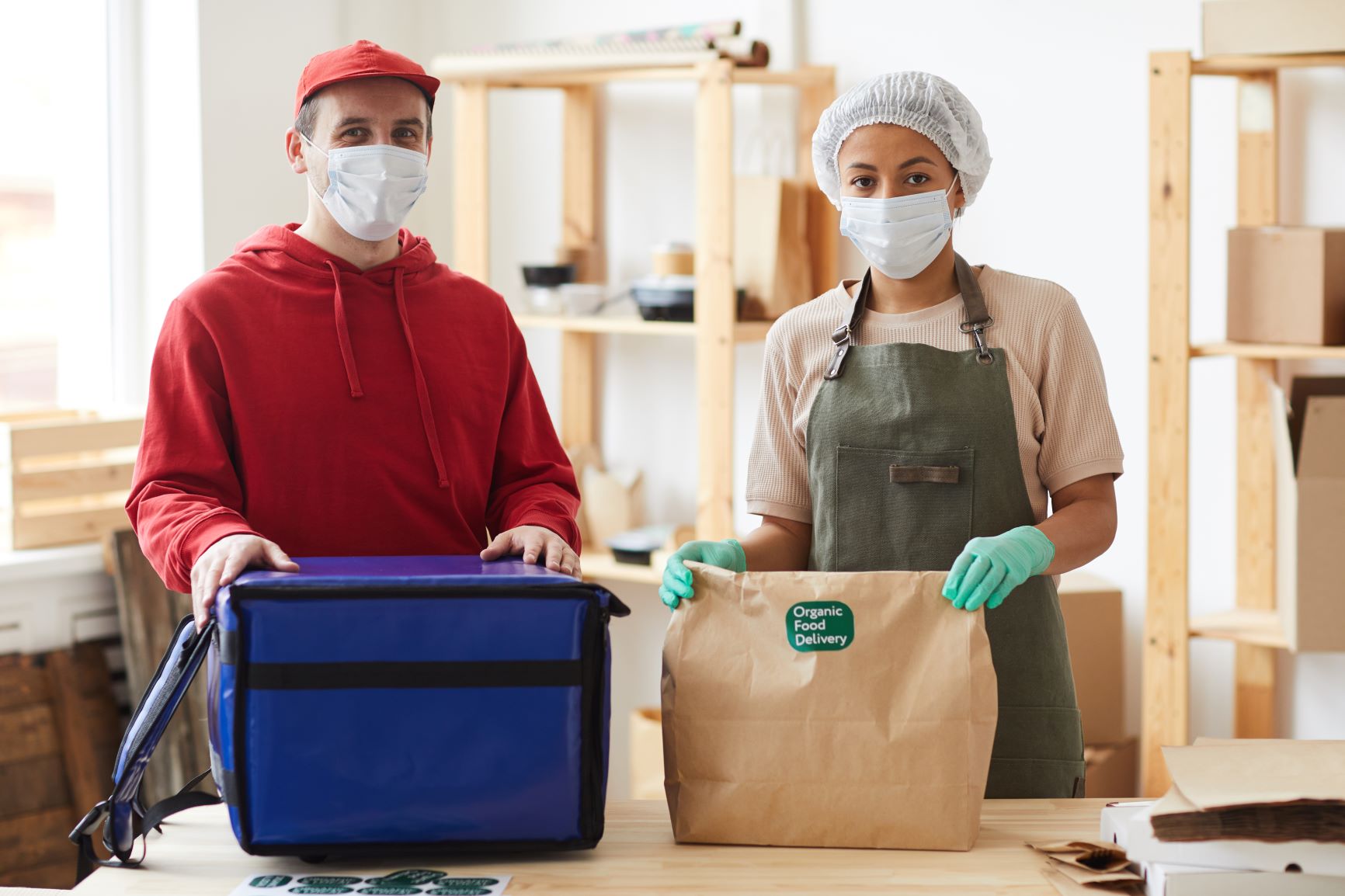- August 12, 2020
- Posted by: FLORES
- Categories: COVID-19 Q&A, Human Resources

You want to be respectful and cater to your customers, but the safety of your staff and others during COVID-19 is also important. What should you do if a customer refuses to wear a mask? Here are some guidelines to follow to deal with this type of situation.
The CDC mandates to wear face coverings to slow the spread of the virus. The ADA (Americans with Disabilities Act) requires that we accommodate individuals with a disability. Businesses have been in a difficult situation in needing to satisfy customers but also ensuring they keep their employees safe to avoid other litigations. So, here are some helpful tips:
Have all the required and recommended postings/signage up
Have all the required and recommended postings/signage in your workplace: So guests and employees are aware of your policies they would need to adhere to even before they enter your location. Your signage should be visible and easy to understand so customers have a clear understanding that they need to wear a facial covering prior to entering your store or they will not be allowed to enter. Also, include signs inside your store and on your store website. By sharing your policies with customers in advance will set a precedence for what your customers will expect from you.
Ensure employees are trained
Ensure employees are trained and follow safety procedures where they keep 6 feet distance, markers on the floor, their mouth and nose covered, etc.
Ensure your employees are trained and have a proper protocol and communication in place when faced with a customer who refuses to wear a mask due to a disability.
You can request medical certification from a customer
If a customer refuses to wear a mask and states that they have a medical condition, then you can request they provide a medical certification that provides their specific limitations (but not diagnosis). In addition, you must discuss with the individual whether there is a way you can provide a reasonable accommodation that will not cause you an undue hardship. You should try to provide alternative arrangements that are workable for your store, your staff, and your other customers. These arrangements will vary considerably based on each store’s ability to make accommodations without creating a hardship on the business.
CDC Guidelines on Running Essential Errands for your Customers
You may use the following CDC Guidelines on Running Essential Errands for your Customers who are at a higher risk for severe illness. For example, having special hours put in place for guests who are at higher risk, or providing contactless delivery to their vehicle. You can also consider having an online order that is ADA compliant put in place via a third party or via your website. Inform the individual that they may order by telephone or online and have items delivered to their home.
Have an employee bring the individual the items they want to buy and allow the individual to pay for them at the front of the store. Have the individual leave a list of items with the store and then deliver the items to their home. Suggest that the individual have a friend or family member do their shopping.
Of course, businesses could avoid this litigation risk by allowing people claiming a disability or medical condition to enter their premises without a mask, although this intensifies the risk of COVID-19 exposure for employees and customers and other potential liability outside of Title III of the ADA.
Quite a difficult place to maneuver so if you need further assistance on creating policies and ensure compliance our HR Team at FLORES will be here to help you grow through these unpredictable currents. Give us a call at (619) 588-2411.
This content is designed to assist with your strategy, but it should not be relied on or substituted for company-specific advice from your employment counsel. As you are aware, things are changing quickly and there is no clear-cut authority or bright-line rules. This is not an unequivocal statement of the law, but instead represents our best interpretation of where things currently stand.
